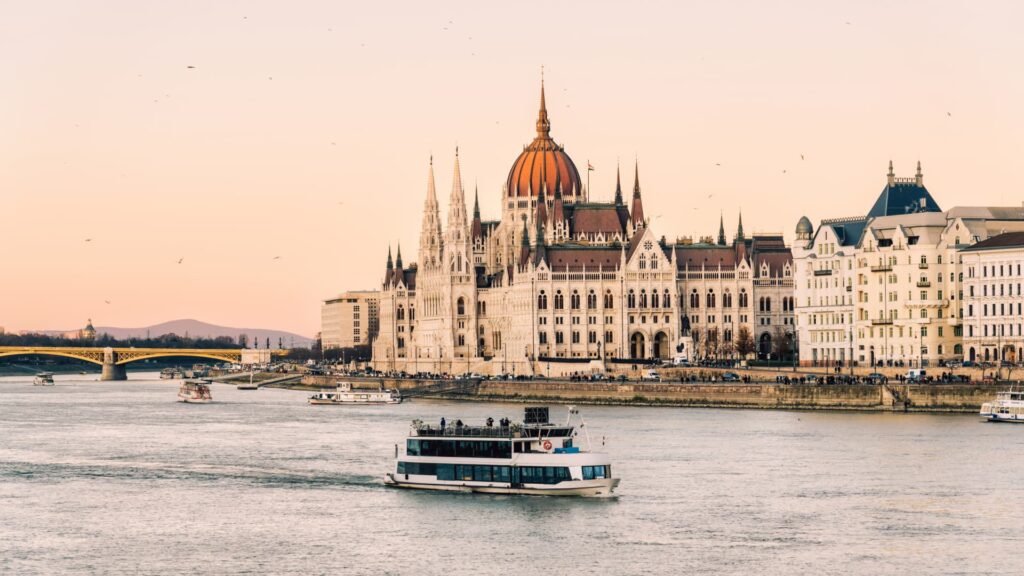Searching for Work and Leisure?
If you’ve been looking for a destination that seamlessly blends work and leisure, your search ends here. Budapest, Hungary’s capital, has emerged as the top choice for those seeking a “workcation,” as reported by the International Workplace Group, a leader in flexible and hybrid workspaces.
Research and Survey Findings
The rankings are based on comprehensive in-house research and a survey conducted among 1,000 hybrid office workers worldwide. These findings highlight the growing trend of hybrid and remote work, which has gained significant momentum since the onset of Covid-19, leading many businesses to adopt flexible work arrangements permanently.
The Rise of Remote Work
Since 2019, the number of individuals working from home has multiplied five-fold. According to a report from the Stanford Institute for Economic Policy Research, 40% of U.S. employees now work remotely at least one day a week. Mark Dixon, CEO of International Workplace Group, notes that advancements in cloud technology have made it easier for professionals to combine work with travel, whether for a short vacation or an extended stay as a digital nomad.
Job Satisfaction and Work Flexibility
The IWG report reveals that 84% of hybrid workers would consider extending their vacations to include remote work, with 75% stating that the ability to work from anywhere enhances their job satisfaction. This underscores the importance of flexible work arrangements in today’s job market.
Criteria for Best Workcation Cities
The report analyzed 30 global cities, rating them on various factors including climate, culture, accommodation, transportation, food, cost of living, happiness, broadband speed, sustainability, and the availability of flexible workspaces. These criteria were chosen to assess how conducive each city is for maintaining productivity while juggling work responsibilities.
Budapest: The Top Destination
Budapest has claimed the top spot with impressive scores in accommodation (9.5/10), transportation (9.5/10), sustainability (8.5/10), and broadband speed (8/10). Known for its stunning classical architecture, vibrant neighborhoods, and extensive green spaces, Budapest attracts around 12 million international tourists annually, making it a prime location for digital nomads.
Top 10 Cities for a Workcation
According to IWG, the top 10 cities for a workcation include:
1. Budapest
2. Barcelona
3. Rio de Janeiro
4. Beijing
5. Lisbon
6. New York
7. Singapore
8. Jakarta
9. Milan
10. London.
Barcelona’s Allure and Asian Contenders
Barcelona, last year’s leader, remains a favorite with its digital nomad visa, reliable transport, and lively atmosphere. It scored highly in transportation (9/10) and accommodation (8.5/10). Asian cities like Beijing, Singapore, and Jakarta also made the top ten, with Singapore jumping 14 places, scoring exceptionally in broadband quality (10/10) and sustainability (9/10).
The Future of Workcations
As companies increasingly adopt Work From Anywhere (WFA) policies to bolster employee work-life balance and enhance their employer appeal, this trend is projected to accelerate further. Dixon emphasizes that more individuals will embrace the flexibility of combining work and travel as remote work continues to evolve.
Top Cities for Workcation in 2023
In today’s fast-paced world, the concept of a “workcation,” where professionals blend work with leisure travel, is gaining popularity. As remote work becomes increasingly viable, many are looking for destinations that offer both productivity and relaxation. A recent report from a leading flexible workspace provider reveals the best cities around the globe for this unique lifestyle.
Budapest Leads the Way
This year’s standout city for workcation is Budapest, Hungary. Known for its stunning architecture and rich cultural heritage, Budapest offers an exceptional environment for remote workers. With a score of 9.5 in accommodation and transport, it stands out as a perfect blend of comfort and accessibility, making it a prime choice for digital nomads.
The Rise of Remote Work
Since the onset of the pandemic, remote work has evolved from a temporary solution to a permanent fixture for many organizations. Recent data indicates that the number of individuals working from home has surged dramatically, highlighting a significant shift in workplace culture. This new reality allows employees to travel while maintaining their professional commitments.
Key Factors for Choosing a Workcation City
When evaluating cities for remote work, factors like climate, culture, and the availability of flexible workspaces are crucial. High-speed internet and sustainable practices also play a vital role in ensuring productivity and a pleasant living experience. Cities that excel in these areas create the perfect environment for a seamless work-life balance.
Other Notable Cities
Following Budapest are other impressive cities: Barcelona, Rio de Janeiro, and Beijing. Each offers unique benefits, such as vibrant cultures, affordable living, and excellent transportation systems. For example, Barcelona maintains its reputation for being a favorite with its lively atmosphere and rich architectural history.
Asia’s Strong Showing
In the latest rankings, Asian cities also shine, with Singapore, Jakarta, and Beijing making the top ten. Singapore’s remarkable broadband speed and sustainable initiatives make it an attractive option for remote workers. It has even taken significant strides towards becoming a digital hub with plans for complete island-wide 5G coverage.
Future of Workcation Trends
The trend towards remote work and workcations is expected to accelerate, as companies increasingly adopt flexible work-from-anywhere policies. This shift not only enhances employees’ work-life balance but also improves job satisfaction, attracting talent from across the globe.
As more individuals consider their next workcation destination, cities offering the right mix of amenities, culture, and connectivity will undoubtedly lead the way. Whether you’re looking to work from a café in Budapest or enjoy the sun in Barcelona, the future of work has never looked more exciting.


